The type of bobbin with a bead spangle attached to the tail was unique to the lacemakers of the English East Midlands lacemaking area (Bedfordshire, Buckinghamshire, Northamptonshire etc) and is the preferred style of many present day lacemakers.
They are/were made from wood with a fine grain such as fruitwoods (apple, plum or cherry), rosewood and more recently from exotic hardwoods, or from bone. Nearly all modern bone bobbins are beef (cow) bone but antique bobbins may be ham (pig) bone.
The following examples are all modern bobbins; made within the last 30 years.
Unless otherwise stated all of the pictures on this page are of bobbins from my own collection. If you find the same image but without credits, on any other website it has been used without my permission.
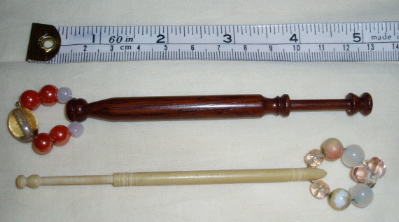
Midlands bobbins can be fat or slim.....
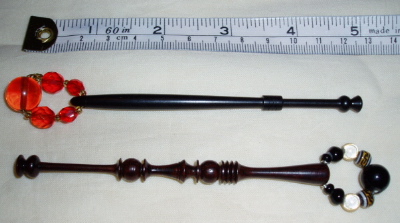
.....plain or fancy.
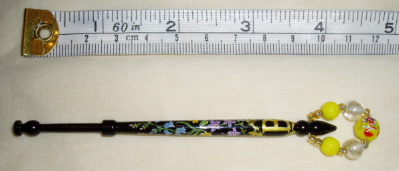
They can be painted.....
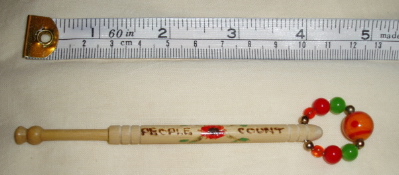
.....or pyrographed
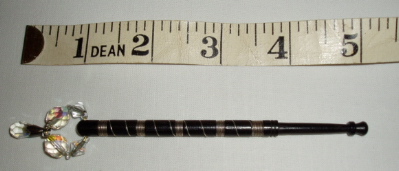
Bound with wire.....
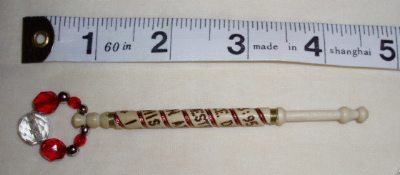
.....or wire over tinsel. These bobbins are called fairings because they used to be sold at fairs.
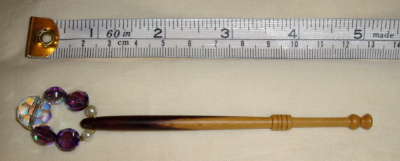
Decoration can be introduced by using the natural division of heart and sap wood.....
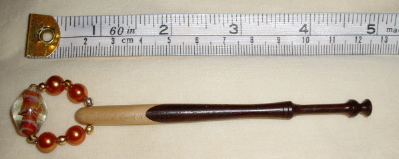
.....or by splicing two different woods together....
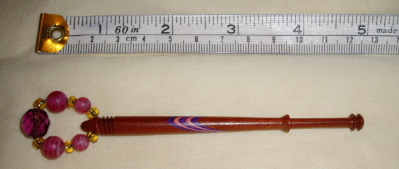
.....or inserting a splice of dyed woods
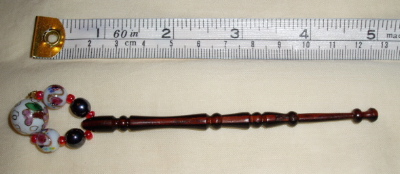
Layers of different woods can be used.....
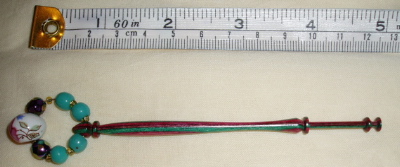
.....or layers of dyed woods
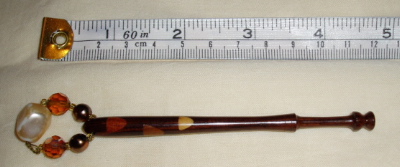
Inserts of contrasting woods can be used.....
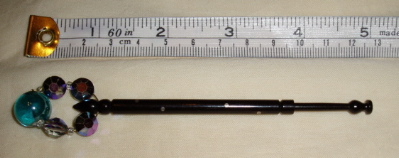
.....or metal inserts
Names and commemorative inscriptions are often applied to the shank of a bobbin. Inscriptions on wooden bobbins can be painted or pyrographed with a hot nib which scorches the letters into the surface. On bone it is necessary to make a series o small indentations using the tip of a drill and then fill these with paint.
The writing can be straight along the shank of the bobbin or between spiral bands of wire.
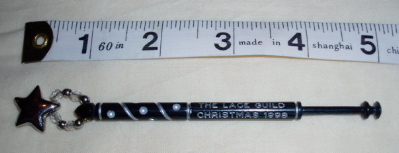
This is an example of a straight inscription, impressed into the wood and filled with paint
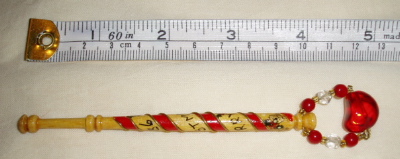
This a right-handed spiral inscription and the inscription is read from bottom to top of the bobbin.
Most spiral bobbins are right handed, (maybe it's easier for a right-handed bobbin maker to make right handed spirals on the lathe). Occasionally a left-handed spiral decoration is found, and if combined with an inscription it would be read from top to bottom
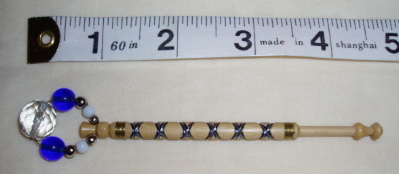
This is an example of left and right hand spirals together